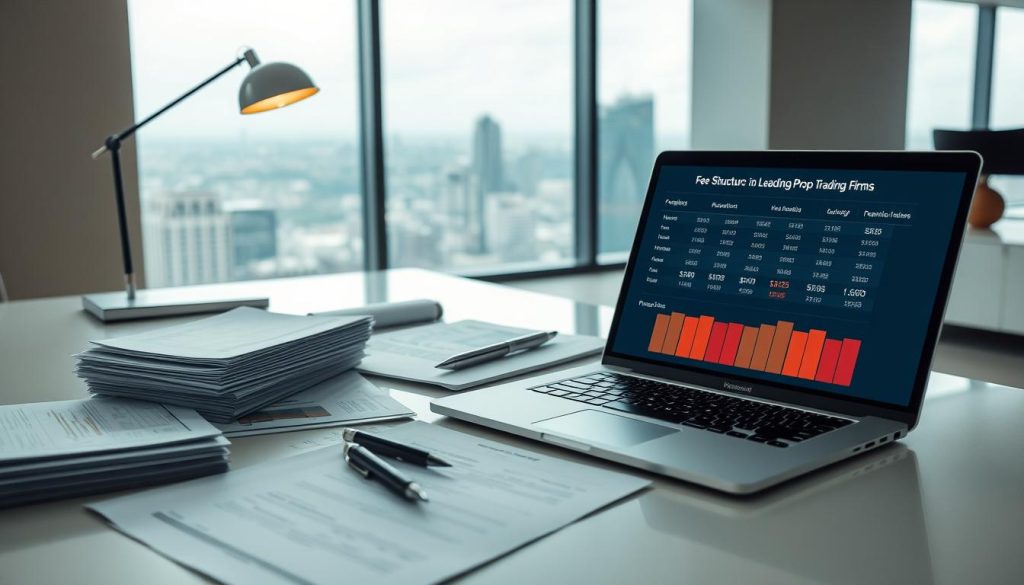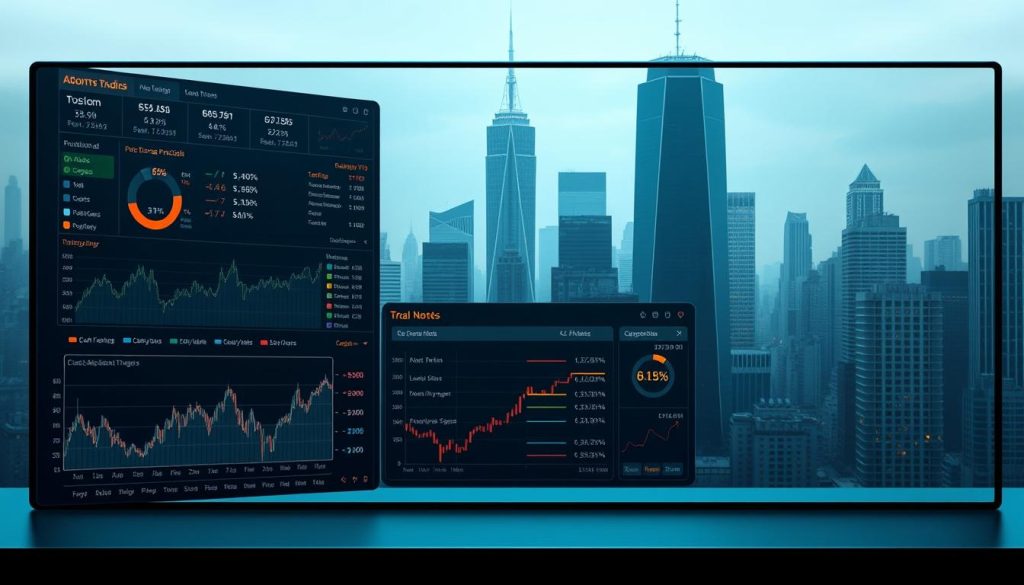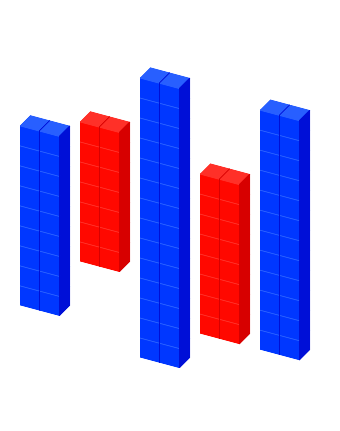Day traders are looking at proprietary trading firms for new market chances. These firms offer more than regular investment ways. Reviews help traders understand these advantages.
Finding the right proprietary trading firm is tough. This guide offers detailed reviews to help traders choose wisely. It’s all about making smart trading partnerships.
Choosing the right firm is key for traders’ success. Our ratings show the best platforms and trading conditions. They also highlight profit chances in different markets.
Key Takeaways
- Comprehensive analysis of top proprietary trading firms
- Detailed insights into trading capital requirements
- Evaluation of profit-sharing models
- Risk management strategies assessment
- Technology and platform performance comparisons
- Regulatory compliance verification
- Educational resources and trader support evaluation
Understanding Proprietary Trading Firms: A Comprehensive Guide
Reviews of prop trading companies show a world of financial trading. Here, firms use their own money to make profits. They offer traders unique chances that regular investment models don’t.
Prop trading firms work in ways that set them apart from regular banks. Evaluations of these firms highlight key parts of how they operate.
Key Components of Prop Trading Operations
The main parts of proprietary trading are:
- Capital allocation strategies
- Advanced risk management protocols
- Sophisticated trading technology
- Performance-based compensation structures
Different Types of Prop Trading Models
Prop trading firms use various models:
- Remote Trading Platforms: Traders work from anywhere in the world
- In-House Trading Desks: Traders work in a central place
- Hybrid Models: Mixes remote and in-house trading
Risk Management in Prop Trading
Good prop trading firms use strict risk management. This helps protect money and increase gains. They use:
| Risk Management Technique | Primary Function |
|---|---|
| Position Sizing | Limits potential losses per trade |
| Stop-Loss Mechanisms | Automatically exits trades at predetermined loss levels |
| Diversification | Spreads risk across multiple trading instruments |
Knowing these details helps traders understand the complex world of prop trading firms.
Top Rated Prop Trading Firms Reviews in 2024
Exploring the world of proprietary trading houses is complex. Our detailed reviews focus on the best prop trading desks for 2024. These firms offer great chances for skilled traders.
Reviews of prop trading desks show some firms stand out. They are known for their cutting-edge trading platforms, strong risk management, and fair profit-sharing.
- Topstep: Known for its transparent evaluation process
- FTMO: Offers extensive global market access
- The5ers: Specializes in flexible trading conditions
Testimonials from traders highlight three key points:
- Capital allocation strategies
- Risk management protocols
- Profit distribution mechanisms
| Prop Trading Firm | Initial Capital | Max Profit Share | Evaluation Cost |
|---|---|---|---|
| Topstep | $50,000 | 80% | $150 |
| FTMO | $100,000 | 90% | $299 |
| The5ers | $40,000 | 75% | $250 |
Traders need to do their homework. They should find a trading platform that fits their style to increase their chances of success.
Essential Criteria for Evaluating Prop Trading Companies
Choosing the right proprietary trading boutiques is crucial. Traders must carefully review prop firm feedback to make smart choices about their trading partners.

Understanding the complex world of proprietary trading firms is key. Traders need detailed insights to spot the best platforms from the rest.
Trading Capital and Leverage Options
Good prop trading starts with knowing about capital and leverage. Important points to consider are:
- Initial funding ranges
- Maximum leverage ratios
- Risk management protocols
- Scalability of trading accounts
Profit Split Arrangements
Profit sharing models differ a lot among proprietary trading boutiques. Traders should look closely at how earnings are split.
| Profit Split Percentage | Trader Retention | Typical Firm Requirements |
|---|---|---|
| 50/50 Split | $500-$1000 monthly | Consistent performance |
| 60/40 Split | $1000-$2000 monthly | Proven trading strategy |
| 70/30 Split | $2000-$3500 monthly | Advanced risk management |
Platform Technology and Tools
Modern prop trading needs top-notch tech. Sophisticated traders need platforms with real-time analytics, advanced charting, and fast trade execution.
- Advanced charting tools
- Real-time market data
- Risk management algorithms
- High-speed trade execution
Professional traders know that technology is crucial in competitive trading.
Trading Conditions and Account Types Comparison
Exploring prop trading shops means knowing about different account types and trading conditions. Reviews of prop trading groups show big differences in their trading setups.
Traders can pick from various account types, each suited for different skills and strategies. The main types are:
- Evaluation Accounts
- Funded Trader Accounts
- Demo Trading Accounts
- Professional Trader Accounts
Each type has its own features that can affect a trader’s success. Comprehensive prop firm evaluation guides advise to study these differences before choosing a platform.
| Account Type | Initial Capital | Trading Restrictions | Profit Split |
|---|---|---|---|
| Evaluation Account | $5,000 – $50,000 | Strict risk management rules | 70-80% |
| Funded Trader Account | $100,000 – $500,000 | Moderate restrictions | 80-90% |
| Professional Account | $500,000+ | Minimal restrictions | 90-95% |
When choosing an account, consider the trading capital, leverage, and profit-sharing. Prop trading shops have different conditions for various trader profiles and experience levels.
“The right account type can significantly impact your trading success and potential earnings.” – Professional Trader
When comparing prop trading groups, look at trading hours, available markets, and instruments. Knowing these details helps find the best opportunities and avoid limits.
Costs and Fee Structures Across Major Prop Firms
Understanding the fees of proprietary trading firms is key. Reviews show it’s crucial to know these costs before joining. These fees can greatly affect a trader’s earnings.

When looking at proprietary trading firms ratings, pay attention to different costs. These can change your trading experience.
Initial Evaluation Fees
Most firms charge a fee to check if you’re a good fit. These fees are usually between $100 and $500. The cost depends on the firm’s reputation and how hard the challenge is. Important things to consider are:
- Refundable fees for successful challenge completion
- One-time vs. recurring evaluation costs
- Different pricing tiers based on trading account size
Monthly Subscription Costs
Traders also face ongoing costs. Monthly fees vary from $50 to $300. These costs depend on:
- Platform access and technological support
- Trading instrument availability
- Educational resources provided
Hidden Charges to Watch For
Experienced traders know to read the fine print. Unexpected fees can quickly erode potential profits. Some hidden charges include:
- Data feed charges
- Inactivity penalties
- Platform maintenance fees
- Additional transaction costs
By carefully looking at these costs, traders can make better choices. They can pick the most cost-effective prop trading firm for their strategy.
Profit Sharing Models and Payout Systems

Exploring profit sharing in prop trading companies is crucial. Reviews show different payout systems that affect how much traders can earn. It’s important to know how each firm shares profits.
Common profit sharing models are:
- Fixed percentage splits (50/50, 60/40)
- Performance-tiered profit sharing
- Scaling profit distributions based on account growth
When reviewing prop trading companies, look at how often they pay out and how you can withdraw money. Choosing the right prop firm means understanding these financial details well.
Key considerations for profit sharing include:
- Minimum profit thresholds
- Withdrawal processing times
- Performance verification requirements
Some firms offer progressive profit scaling. This rewards traders for their consistent success. It encourages them to improve their strategies and opens up more financial opportunities.
Smart traders analyze profit sharing models as meticulously as their trading strategies.
The best profit sharing model varies by trader’s goals, risk level, and financial plans. Comparing payout systems shows how different prop trading firms can be.
Platform Features and Trading Technology Analysis
Proprietary trading houses testimonials show how key advanced trading technologies are. They highlight the need for top-notch platform features. These features can greatly impact a trader’s success.

For top performance, traders must look at the tech behind prop trading firms. The right platform boosts trading efficiency and decision-making.
Execution Speed and Reliability
Trading platform success depends on two main things:
- Fast execution speeds
- Stable networks
- Quick data processing
Available Trading Instruments
Professional traders want access to many markets. Top prop trading platforms offer:
- Equities
- Futures
- Forex
- Cryptocurrency markets
- Options trading
Technical Analysis Tools
Top trading platforms have advanced tools. Advanced charting, predictive algorithms, and market indicators give traders an edge.
| Feature | Advanced Platforms | Basic Platforms |
|---|---|---|
| Charting Depth | Multiple Timeframes | Limited Views |
| Indicator Library | 100+ Indicators | 10-20 Indicators |
| AI Integration | Machine Learning Predictors | No AI Support |
Successful traders see tech as a strategic advantage. It’s not just a tool in the competitive world of proprietary trading.
Risk Management Policies and Trading Rules

Proprietary trading boutiques show us how important risk management is. It keeps both traders and firms safe. Good prop trading has strong rules to avoid big losses and find more chances to trade.
Top prop firms have strict rules for managing risk. These rules help traders stay focused and keep their money safe from big losses.
- Maximum daily loss limits usually are 4-5% of total trading capital
- Rules on how much to trade prevent too much risk
- Stop-loss orders are required for all trades
- Trading is limited during times of high market volatility
Feedback from prop firms always points to the need for clear risk rules. Traders must follow these rules closely. This keeps their accounts safe and lets them keep trading.
Important things to think about in risk management include:
- Drawdown thresholds that check if accounts are doing well
- Rules on which instruments to trade
- Guidelines for holding positions overnight
- Rules on the risk-to-reward ratio
Leading prop trading firms use the latest tech to watch trader performance live. This helps keep risk in check while helping traders grow and succeed.
“Risk management is not about eliminating risk, but understanding and controlling it strategically.” – Professional Prop Trading Expert
Customer Support and Educational Resources
Prop trading shops opinions show how key good customer support and learning tools are. Traders aiming to do well in proprietary trading need to look at the support and education offered by different groups.

Prop trading is more than just knowing the market. The right support can greatly help a trader succeed.
Training Programs for Aspiring Traders
Top prop trading firms stand out with their great educational programs:
- Comprehensive online trading courses
- Live webinar series with industry experts
- One-on-one mentorship programs
- Advanced technical analysis workshops
Community Support Ecosystem
Great prop trading groups offer lots of community support. This lets traders:
- Connect with experienced traders
- Share strategy insights
- Join in on collaborative learning
- Get into real-time market talks
Technical Assistance Excellence
Prop trading platforms spend a lot on customer support. Traders get:
- 24/7 multilingual support teams
- Quick response times
- Many ways to communicate
- Special help for technical issues
The quality of support can be the difference between success and failure in prop trading.
Choosing a prop trading firm with top-notch education and support can really help a trader learn fast and succeed.
Success Rates and Trader Testimonials

Understanding success rates and trader experiences is key in the competitive world of prop trading. Reviews of prop trading firms offer valuable insights into the potential for trading success. They show how different platforms compare.
When evaluating proprietary trading firms, consider various performance metrics. Our research points out important factors that set top trading environments apart:
- Evaluation pass rates ranging from 10-25%
- Average trader retention after initial evaluation
- Profit potential and capital allocation strategies
Successful traders stress the importance of choosing prop trading firms with strong support. Comprehensive training, advanced technological platforms, and responsive mentorship are key to success.
| Prop Trading Firm | Evaluation Pass Rate | Average Monthly Trader Earnings |
|---|---|---|
| TopTier Trading | 22% | $4,500 |
| FTMO | 18% | $3,800 |
| Funded Trader | 15% | $3,200 |
“The key to success is persistent learning and strategic risk management.” – Professional Trader
Proprietary trading firms ratings show that success is not just about skill. It’s also about choosing the right trading environment. Traders who understand firm-specific requirements have a better chance of long-term success.
Regulatory Compliance and Security Measures
Prop trading companies have to follow strict rules and keep their systems safe. Top firms are known for their strong legal and financial protection.
Traders need to pick firms with good security. Important parts of following the rules include:
- Verified financial licensing from recognized regulatory bodies
- Transparent fund segregation practices
- Advanced cybersecurity infrastructure
- Regular third-party security audits
Regulatory protection is key for traders’ money and personal info. Good prop trading firms have strict rules to keep traders safe and money secure.
When checking prop firms, look at these important security signs:
- Regulatory registration status
- Data encryption standards
- Client fund protection mechanisms
- Transparency in operational reporting
The best prop trading companies always follow the rules. Traders can check if a firm is registered with groups like the National Futures Association (NFA). They should also look at the firm’s risk management plans.
“Security is not an option—it’s a fundamental requirement in prop trading.” – Financial Compliance Expert
Smart traders know that following the rules is more than just legal stuff. It shows a firm’s commitment to protecting traders and keeping trading professional.
Global Market Access and Trading Hours
Proprietary trading houses have changed the game, giving traders worldwide access to financial markets. They offer advanced tools for those looking to explore different markets. Prop trading desk critiques show how key it is to know about global trading options.
Today, traders can trade all day, every day, thanks to markets open in different time zones. Important things to think about when trading globally include:
- Extended trading hours across multiple exchanges
- Real-time market data from international financial centers
- Diverse instrument trading capabilities
Available Trading Sessions
Modern proprietary trading houses offer wide trading windows across global markets. Traders can easily move between Asian, European, and North American trading sessions. This helps them grab more opportunities and avoid location limits.
Market Coverage Scope
Prop trading firms are growing their market reach. They now offer access to:
- Forex markets
- Cryptocurrency exchanges
- Global stock indices
- Commodity futures
Geographic Restrictions
Even with more global access, some trading houses still have area limits. Traders need to check the firm’s rules on where they can trade. Testimonials from proprietary trading houses can give clues about these rules.
Professional traders know that having access to all markets is key for strong trading plans.
Conclusion
Choosing the right proprietary trading boutiques is a big decision. It involves looking at many important factors. Feedback from prop firms shows that good traders value strong platforms, solid risk management, and clear profit sharing.
Day trading is all about making smart choices. It’s crucial to pick prop trading firms that match your goals and how much risk you’re willing to take.
Investors should use the detailed feedback and assessments in this review. Knowing the differences between trading platforms and how they work can really help. Each firm has its own chances and challenges that need careful thought.
Today’s prop trading firms have advanced technology and access to global markets. This lets traders improve their strategies. By looking at things like how much capital is used, trading rules, and support, traders can make better choices.
The world of prop trading is always changing. It offers great chances for skilled traders who are ready to learn and improve. Picking the right firm can be a key step to a successful trading career in the digital world.

